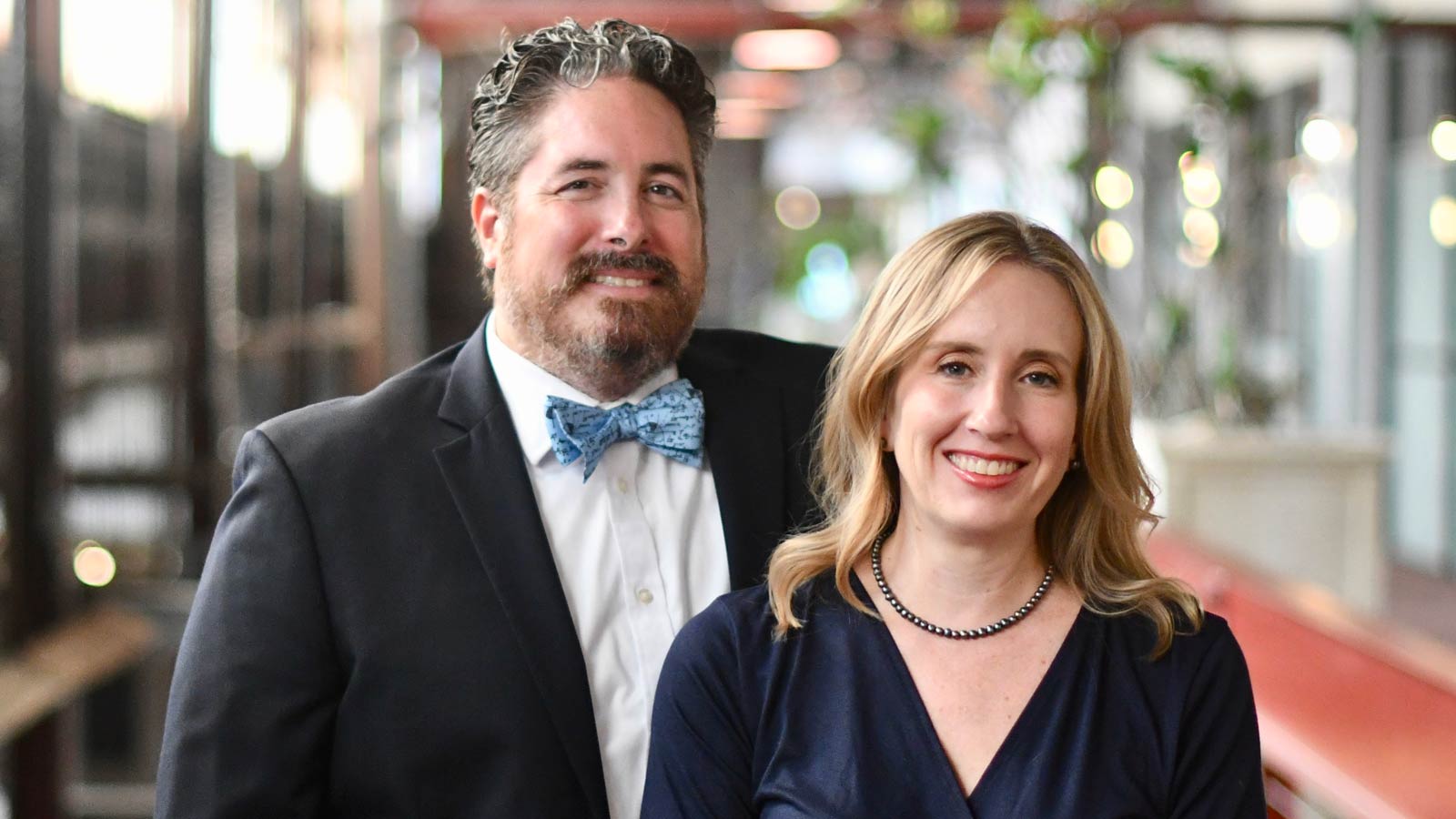Two national leaders in the biomedical engineering field, Michael King and Cynthia Reinhart-King, whose research programs have advanced the understanding and treatment of cancer and other diseases, will join the Rice University faculty next year.
“Both are established leaders in bioengineering,” said Gang Bao, department chair and Foyt Family Professor of Bioengineering (BIOE) at Rice. “Cindy has been doing outstanding research on understanding tissue formation and tissue disruption during diseases such as atherosclerosis and cancer. Mike’s research aims to understand important processes in the blood, including cancer metastasis, inflammation and thrombosis.”
Reinhart-King serves as University Distinguished Professor, senior associate dean for research, the Cornelius Vanderbilt Professor of Biomedical Engineering, and professor of cell and developmental biology. Michael King is the J. Lawrence Wilson Professor and department chair of biomedical engineering. Both are at Vanderbilt University.
“Attracting two senior faculty members of the caliber of Cindy and Mike to Rice attests to the high quality of our bioengineering department and the opportunities it provides for conducting world-class research,” said Luay Nakhleh, the William and Stephanie Sick Dean of Engineering.
“Gang has done an outstanding job leading our top-ranked bioengineering department,” Nakhleh added, “and I am certain that Cindy will build on the great work he has done and take the department to new heights.”
Reinhart-King will become the John W. Cox Chair of Bioengineering and chair of the BIOE department when the couple joins the Rice faculty on July 1, 2024. King will hold the E.D. Butcher Chair of BIOE.
“My lab studies how cells respond to mechanical and chemical cues within tissues and how these cues affect disease progression,” Reinhart-King said. “We use approaches from tissue engineering, biomaterials, microfabrication and molecular biology to understand how the physical properties of tissue can promote diseases, including cancer and atherosclerosis, two of the leading causes of death in the U.S.”
As a cellular bioengineer, her work on extracellular matrices has contributed to breakthroughs in understanding tumor formation. Her lab has played a key role in showing how the matrix, or non-cellular glue in most tissues, can stiffen as tumors form to promote tumor growth and interfere with the effectiveness of cancer treatments.
Reinhart-King is president of the Biomedical Engineering Society and co-director of the Center on Mechanobiology at Vanderbilt. Before joining that university in 2017, she was on the faculty of Cornell University, where she received tenure in the biomedical engineering department. She is a fellow of the Biomedical Engineering Society, American Institute of Medical and Biological Engineering, and the International Academy of Medical and Biological Engineering.
King is a fellow of the National Academy of Inventors, American Association for the Advancement of Science, American Institute for Medical and Biological Engineering (AIMBE), Biomedical Engineering Society and the International Academy of Medical and Biological Engineering. He is editor-in-chief of Cellular and Molecular Bioengineering. He served as chair of the BME Council of Chairs and previously taught at Cornell and the University of Rochester. He is the chair of the AIMBE College of Fellows.
“My lab studies how cancer and immune cells respond to fluid shear forces, to gain a better understanding of the physical mechanisms of cancer metastasis. The goal is to innovate new approaches to treating cancer. We develop nanoparticles and nanostructured surfaces to deliver therapeutics to metastatic tumor cells, and build more realistic 3-D models of cancer,” said King, who will be a Cancer Prevention and Research Institute of Texas Scholar at Rice.
King’s research group found that tumor cells in the circulation system can mimic the physical mechanisms used by white blood cells to travel through the body and adhere to the blood vessel wall, and has explored strategies to interrupt this metastasis process by targeting specific adhesion receptors.
“At Rice,” King said, “I’ll be pivoting back to focus more on pure research and teaching. I’m also excited about a new, part-time role working with the Rice provost, Amy Dittmar, on life science collaborations with the Texas Medical Center. I’ll have an opportunity to apply what I’ve learned in administration to benefit Rice more broadly.”
Both look forward to collaborating with clinicians at the Texas Medical Center. “It will be exciting,” King said, “to be next door to the largest medical center in the world, with research expertise in nearly every type of cancer.”
“Rice Engineering is poised for significant growth,” Reinhart-King said. “Over the next several years I will work with the faculty and the dean to grow the BIOE faculty strategically and add strength in research and teaching. We will focus on enhancing the undergraduate, graduate and postdoctoral associate experiences, recruiting the best people and training them to be leaders in bioengineering.”

